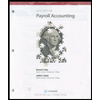Many small businesses have to squeeze down costs any way they can just to survive. One way many businesses do this is by hiring workers as “independent contractors” rather than as regular employees. Unlike rules for regular employees, a business does not have to pay Social Security (FICA) taxes and unemployment insurance payments for independent contractors. Similarly, it does not have to withhold federal, state, or local income taxes or the employee’s share of FICA taxes. The IRS has a “20 factor test” that determines whether a worker should be considered an employee or a contractor, but many businesses ignore those rules or interpret them loosely in their favor. When workers are treated as independent contractors, they do not get a W-2 form at tax time (they get a 1099 instead), they do not have any income taxes withheld, and they find themselves subject to “self-employment” taxes, by which they bear the brunt of both the employee’s and the employer’s shares of FICA taxes. Requirements When a business abuses this issue, how is the independent contractor hurt? If a business takes an aggressive position—that is, interprets the law in a very slanted way—is there an ethical issue involved? Who is hurt?
Many small businesses have to squeeze down costs any way they can just to survive. One way many businesses do this is by hiring workers as “independent contractors” rather than as regular employees. Unlike rules for regular employees, a business does not have to pay Social Security (FICA) taxes and
- When a business abuses this issue, how is the independent contractor hurt?
- If a business takes an aggressive position—that is, interprets the law in a very slanted way—is there an ethical issue involved? Who is hurt?
Trending now
This is a popular solution!
Step by step
Solved in 3 steps with 3 images









